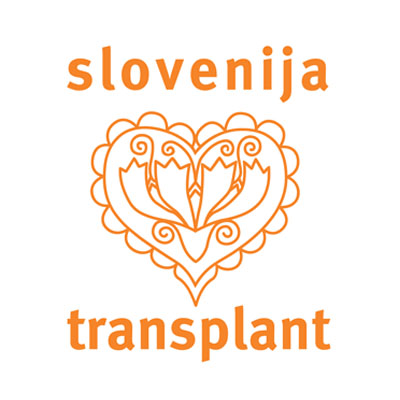Quality
Slovenija-transplant has been running a quality assurance programme (QAP) for the donor programme since 2012. Through analyses and audits of the work in the donor hospitals, we evaluate the donor potential and take immediate measures to improve it.
The legislator has also imposed the following responsibilities on Slovenija-transplant:
- Professional supervision: Slovenija-transplant issues professional guidelines and exercises professional supervision over donor and transplant centres. It also advises, creates and updates the system for the quality and safety of organs and controls the exchange of organs and tissues with other members of the European Union and third countries.
- Register management: Slovenija-transplant develops and maintains an information system for the procurement, transplantation and disposal of organs and tissues. It creates and manages the central register of donors and recipients and the records of authorisations issued by donor and transplant centres. It keeps records of the number of living and deceased donors as well as the type and number of organs removed and transplanted. It also manages the waiting lists and records of hospital transplant coordinators, clinical transplant coordinators and central transplant coordinators and creates and manages the databases of identified donors. The collection and storage of data is carried out in accordance with the law and the General Data Protection Act.
- Ensuring traceability: Slovenija-transplant and Eurotransplant carry out checks on the body parts removed, transplanted or disposed of. Donor and transplant centres must inform Slovenija-transplant about procured organs and tissues, all transplantations of organs and tissues and the possible storage of organs and tissues. Monitoring begins in the operating theatre when the organs are removed, where the transplant coordinator carefully documents each organ or tissue removed. The register of procured organs is kept simultaneously by Slovenija-transplant and Eurotransplant. The transplant coordinator documents every organ or tissue transplanted in Slovenia and every organ or tissue donated or acquired at Eurotransplant. If the organ or tissue has not been transplanted, it is disposed of before the Commission according to a defined procedure and a special certificate is issued for the disposed organ. The signatories of this certificate are responsible professionals. Slovenija-transplant then sends the certificate to Eurotransplant and vice versa. Slovenija-transplant and Eurotransplant document the use and exchange of the individual organs:
- donated by a deceased donor in Slovenia and used in Slovenia;
- donated by a deceased donor in Slovenia and used in one of the centres of the Eurotransplant network;
- sent to Slovenia from the Eurotransplant network;
- sent to Slovenia from a country that is not part of the Eurotransplant network.
Safety
Organ donation for the purpose of transplantation treatment is regulated by the Act on the Regulation of the Procurement and Transplantation of Human Body Parts for the Purpose of Medical Treatment (ZPPDČT, Official Gazette of the RS, No. 56/15), according to which organ donation is based on the principles of voluntariness and altruism. The law is harmonised with Directive 2010/53/EU of the European Parliament and of the Council and Commission Implementing Directive 2012/25/EU.
Organ donation is a voluntary and altruistic act. It is not permitted to receive payment or other monetary or non-monetary benefits for the donation of organs and tissues.
A donation requires the consent (either of the deceased, who has expressed his will during his lifetime, or of the next of kin). During their lifetime, any person over the age of 15 who is capable of judgement can decide whether or not they wish to donate after death. The designation in the national donor registry can be revoked at any time. The formal designation is safely stored in a database managed by Slovenija-transplant and is accessible to the hospital’s transplant coordinator and the central transplant coordinator after the death of a potential donor.
The donation of body parts from a deceased donor is carried out after the unequivocal death of the donor. The death of the donor is defined as brain death or death after definite cardiac arrest or circulatory death. Brain death is determined by a Commission for brain death determination, consisting of at least two medical specialists. The decision of the commission members must be unanimous. The members of the commission may not be doctors involved in the removal of organs and tissues or transplantation.
The system of allocating organs and tissues to recipients is based on fairness and equal access for all recipients of transplant treatment, which is also in line with the regulation on the management of waiting lists. The organ and tissue allocation system is transparent, autonomous and independent, and the organs and tissues procured are used for the greatest possible benefit. Donor and transplant centres must inform Slovenija-transplant about all organ and tissues removals, all organ and tissue transplants and the possible storage of organs and tissue.
Biovigilance
Slovenija-transplant is responsible for the management of adverse events, reactions and deviations in the area of transplant-related organ supply (organovigilance) and tissue and cells (histovigilance). The purpose of collecting reports on adverse events and reactions or raising suspicions is to ensure the quality of procedures, the safety of recipients and the prevention of damage or even loss of organs, tissues and cells.
To ensure the safety of the procurement and use of organs for transplantation, we deal with all deviations that may occur during procurement, preparation, short-term storage, transport and also transplantation. Each case is analysed from the point of view of ensuring safety for both the recipients and the personnel involved in the individual phases from procurement to use of the organs (organovigilance). Reports are made using forms that help us to obtain important information while maintaining anonymity. The main purpose is to eliminate deviations on an ongoing basis, which can significantly improve the safety of recipients and staff as well as quality assurance at all stages.
The reports for tissues and cells must be submitted on the prescribed forms, with an initial and a final report for each individual case. Both forms are annexes to the Regulations on histovigilance. Reporting is carried out in several stages: detection of a deviation, accurate description, taking appropriate measures to prevent damage to tissues and cells and people, notification of the competent institutions and information of all tissue and cell establishments that have received the tissues and cells from which the deviation originated.
All data collected in the histovigilance and organivigilance system is anonymised to ensure privacy and, on the other hand, to take into account the i. a culture of non-accusation, which means that reporting is encouraged, solutions or improvements are sought and there is no judgement of performers at a personal level.



